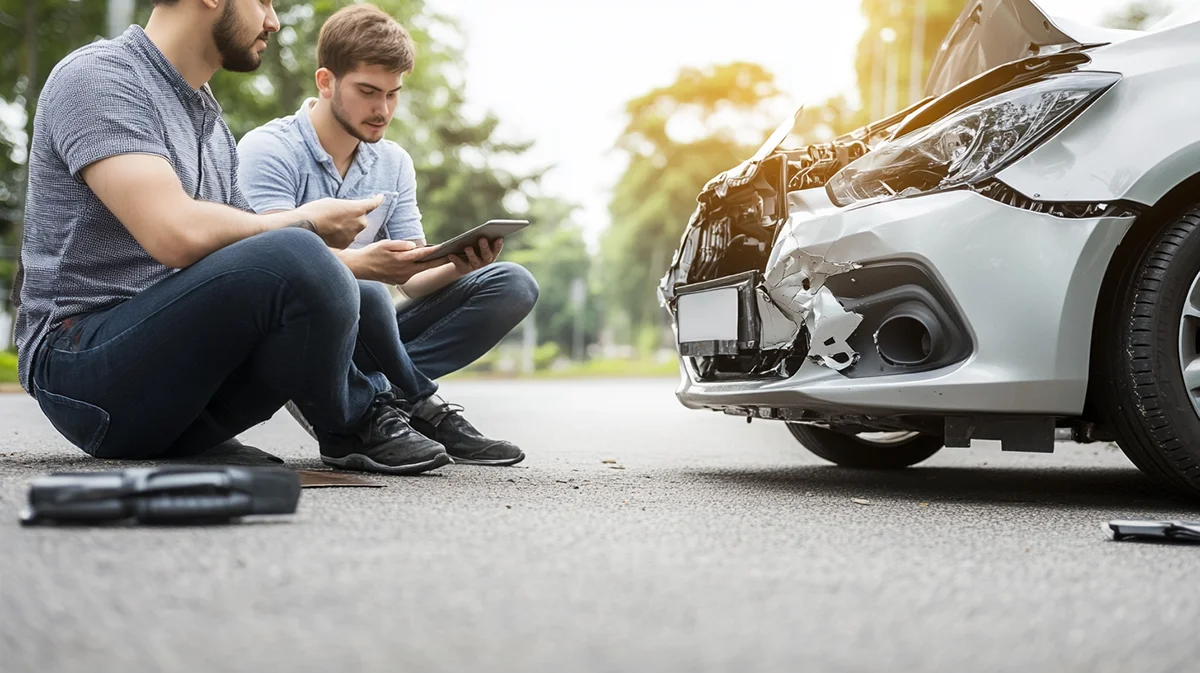Frequently Asked Questions About Personal Injury Law in California
Let’s face it—personal injury law is like a maze, and it’s easy to get lost. You’re dealing with a whirlwind of emotions, medical visits, and insurance adjusters who seem determined to offer you as little as possible. But you don’t have to walk this path alone. If you’ve been injured in a car accident, you need to know what your rights are, how to protect them, and most importantly, how to maximize your compensation.
We’ve rounded up the most burning questions about personal injury law in California, shedding light on the critical facts that could make or break your claim. No fluff—just the essentials.
How Soon Do I Need to File My Personal Injury Claim in California?
Time is your enemy. In California, the statute of limitations for filing a personal injury claim is two years from the date of the accident, as specified in California Code of Civil Procedure §335.1. That’s your window—your chance to file a lawsuit. Miss it, and you forfeit your right to seek compensation. Simple as that.
But here’s the twist: if the accident involves a government entity, such as a city bus or a government vehicle, you’re looking at a much shorter timeframe—six months. That’s right; you’ve got a half-year to get your ducks in a row and file. If you let it slide, your chance is gone.
This is why timing is everything. An experienced California car accident attorney will make sure all deadlines are met, filing the necessary paperwork promptly to keep your case alive and strong. If you’re uncertain about the timeline, don’t wait—contact a lawyer immediately.
What Should I Do After a Car Accident to Protect My Case?
Step one: Document everything. This is not the time to be shy. Photos, witness statements, police reports—every piece of evidence you collect adds weight to your case. If you leave it up to memory, you’re playing a losing game. You need hard facts, and you need them fast.
California law, particularly California Evidence Code §115, places the burden of proof on the plaintiff in civil cases. That’s you. And it means you need to show that it’s more likely than not that the other party’s negligence caused your injuries. Photos of the accident scene, visible injuries, and witness statements help paint that picture.
A good auto injury lawyer near you will know exactly what evidence to collect and how to present it effectively. Don’t leave this to chance. The more information you gather, the stronger your case.
Can I Still Recover Damages if I Was Partially at Fault?
California operates under a comparative fault system, which means you can still recover damages even if you share some of the blame for the accident. According to California Civil Code §1714, your compensation will be reduced by your percentage of fault. For example, if you’re found to be 20% responsible, your total award is reduced by 20%.
But don’t let this discourage you. Skilled auto claim attorneys know how to minimize your level of fault and present your case in a way that maximizes your compensation. They’ll dig into the details, like traffic camera footage and eyewitness testimony, to prove that the other party’s negligence played the primary role.
Even when the odds are against you, understanding California’s fault laws can turn the tables. With the right car wreck law firm, you have a fighting chance, regardless of who’s pointing fingers.
How Do Settlement Offers Work in California?
If you’ve been in an accident, the insurance company will likely come knocking with a settlement offer. It may seem tempting, especially when the bills start piling up. But here’s the catch: the first offer is almost always low. They’re banking on your urgency, hoping you’ll settle for less than your claim is worth.
Under California Code of Civil Procedure §998, either party in a civil case can make a formal settlement offer. But accepting too early can backfire, especially if you don’t yet know the full extent of your injuries. Some issues, like spinal injuries or chronic pain, take time to reveal themselves. Settling too soon means you’re signing away your rights to seek additional compensation later on.
The best move? Consult an experienced personal injury attorney before you agree to anything. They’ll know how to evaluate the offer and determine if it truly reflects the value of your case.
What Types of Damages Can I Recover in a Personal Injury Case?
Damages in personal injury cases fall into two categories: economic and non-economic. Economic damages cover tangible losses like medical expenses, property damage, and lost wages. Non-economic damages, on the other hand, address pain and suffering, emotional distress, and loss of quality of life.
California law allows for recovery of both types, but there’s no cap on non-economic damages—except in medical malpractice cases. According to California Civil Code §1431.2, damages must be apportioned based on the percentage of fault, ensuring that each party pays their fair share.
If you’re dealing with a complex case involving multiple damages, you need an auto claim attorney who can calculate these accurately and fight for the compensation you deserve. It’s not just about covering your current losses; it’s about planning for your future.
Is Going to Court Necessary?
Not always. In fact, most personal injury cases settle outside of court. Why? Because trials are expensive, time-consuming, and uncertain. The insurance companies and defendants know this, so they often prefer to negotiate. If both parties can reach an agreement that satisfies the claim, a settlement is the fastest way to resolve the matter.
But if the settlement offer isn’t fair, your lawyer may recommend taking the case to court. The California Code of Civil Procedure §425.10 sets the requirements for complaints in personal injury cases, ensuring that any claims brought before the court are detailed and specific. An attorney with experience can navigate this process smoothly, making sure you’re in the strongest position possible—whether that’s at the negotiation table or in front of a judge.
How Do I Know If I Need a Lawyer?
Here’s the simple truth: if you’ve been in an accident and suffered an injury, you need a lawyer. Personal injury law is complex, and insurance companies are skilled at minimizing payouts. Trying to navigate it alone is like playing poker without knowing the rules—you’re at a disadvantage.
With a skilled auto injury lawyer by your side, you have an expert who knows how to negotiate, build evidence, and present your case effectively. They’ll handle all the paperwork, gather essential information, and ensure you’re protected at every step. Without professional guidance, you risk losing out on the compensation you truly deserve.
Can I Recover Damages if the Other Driver Is Uninsured?
Yes, you can. California requires drivers to carry insurance, but not everyone follows the law. If you’re hit by an uninsured driver, you can still file a claim under your own Uninsured Motorist Coverage (UM). According to California Insurance Code §11580.2, auto insurance policies must include UM coverage unless specifically declined in writing.
Having this coverage means you can seek compensation from your own insurance company if the at-fault driver lacks coverage. But dealing with insurance companies—yours or theirs—can be tricky. An auto injury lawyer can ensure that your rights are protected throughout the process, increasing your chances of a successful claim.
Know Your Rights, Maximize Your Compensation
Navigating personal injury law in California doesn’t have to be a guessing game. Armed with the right information and supported by a skilled legal team, you can maximize your compensation and secure the best possible outcome for your case. The stakes are high, and you deserve the best representation.
If you’re searching for California car accident attorneys or need car accident injury help, reach out to California Attorney Group at (310) 278-6666 today. Your future depends on making the right choice—make it with confidence.



